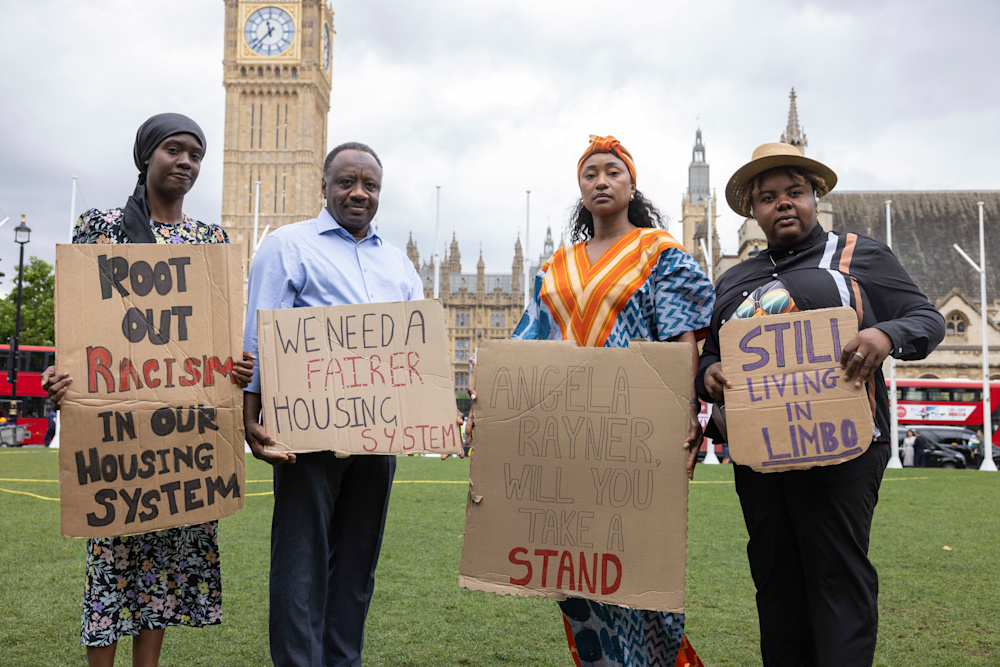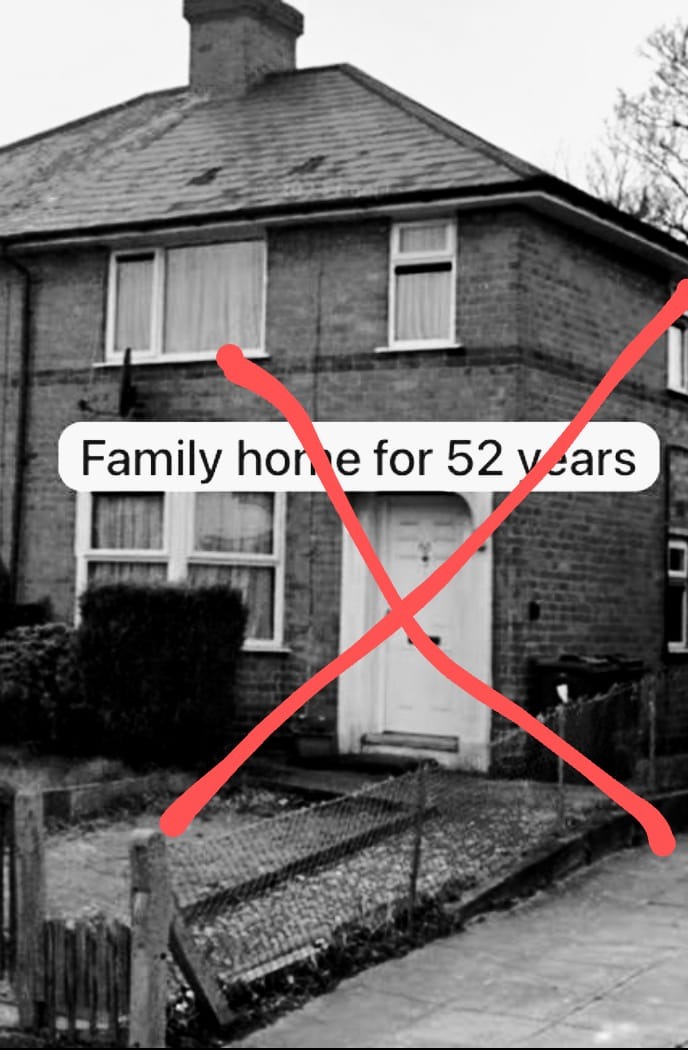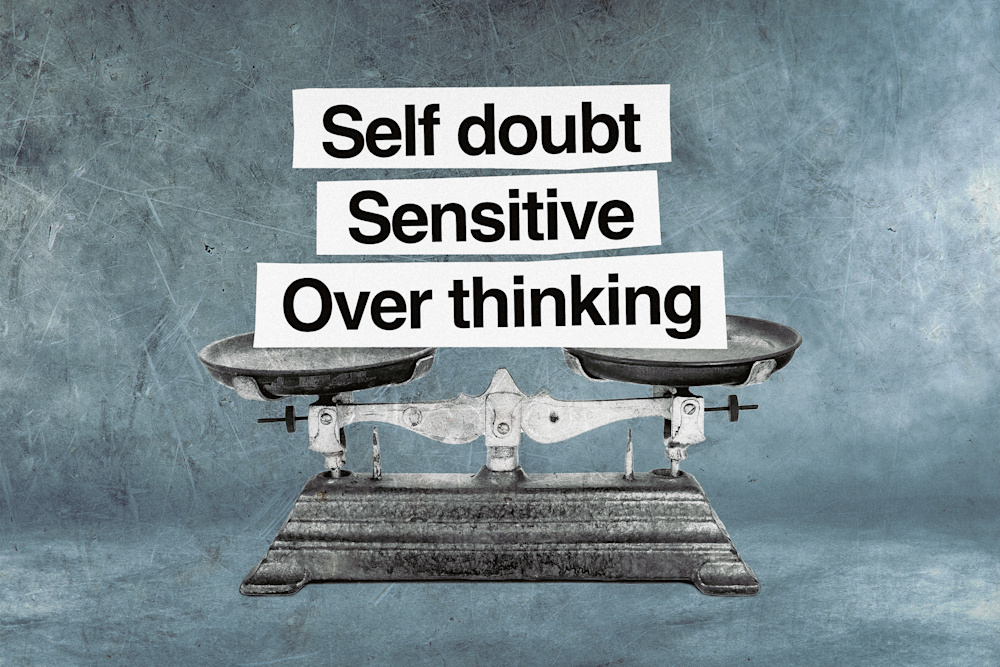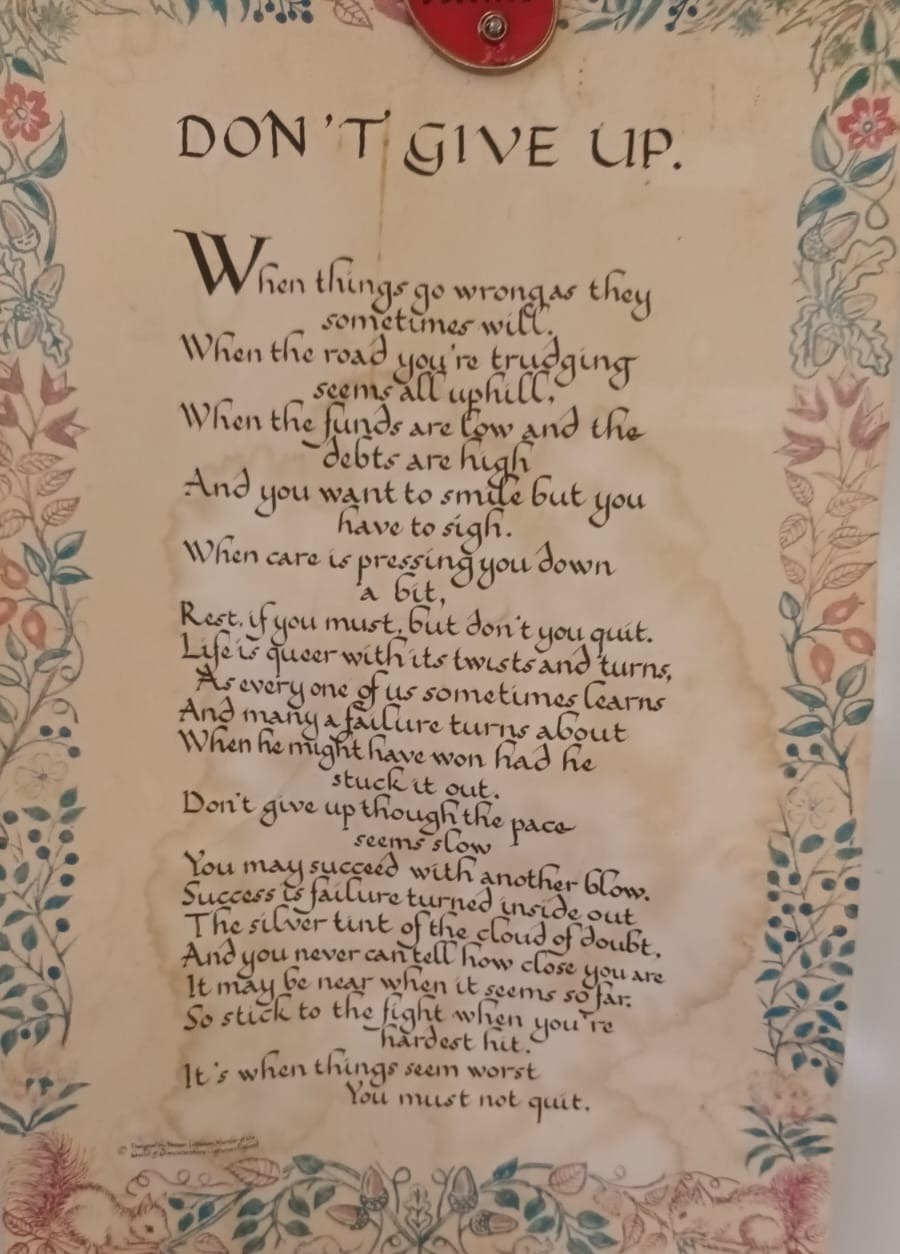Research and insights
'Don’t give up': Tracy's story of racism and resilience in accessing a social home
Published date: 29 July 2025

Nifemi Oni
Research Officer
In this article, themes of racism and discrimination are discussed. Readers are encouraged to read at their own pace. Support resources are available for those who may need them.
Earlier this month, we launched the report ‘My colour speaks before me’: How racism and discrimination affect Black and Black Mixed heritage people’s access to social homes in England. The findings are stark but vital: Black and Black Mixed heritage people continue to face systemic discrimination when trying to secure a social home. This is rooted in historic and structural racism within the housing system.
The project was co-produced with a group of 16 peer researchers who identify as Black or Black Mixed heritage and have lived experience of trying to access social housing. Their insights, creativity, and leadership were central to every stage of the research — from design to delivery.
One of our Peer Researchers, Tracy, who was involved throughout the project, shares her lived experiences and invites you to join us and sign the open letter to Angela Rayner, demanding a fairer housing system.
Tracy’s story
A family home for 52 years


This is our house, our family home for 52 years. When I say it was ours, really, it was the home of my Jamaican father and my half-Irish mom, who moved there in the early 1970s with me and my three brothers.
Tragically, my brother was diagnosed with cancer, and I moved back to Birmingham to support my family. He sadly passed away, which deeply affected us all—especially my parents. My mum never recovered, and in February 2020, she passed away too.
I had informed the council that I was living there to look after my dad, who had dementia. Fast forward to 2021, and my son, who was living four hours away, was in an accident, and I naturally went to be with him. When I got back, the council had changed the locks on my parents' house.
There were no letters, no warnings. The housing officer said, 'He deals with people like me all the time,' and that 'immigrants come here and think they can take everything.' He also said, 'Over his dead body would I get to stay in our family home.'
I had never met that man face-to-face and only spoke to him over the phone, but he had so many pre-conceived notions and stereotypes about me because of my Black Mixed heritage.
Slippery discrimination

I captured an image of scales to illustrate the emotional turmoil of self-doubt and the emotional impact of the microaggressions I faced, and the questions it brought up: Am I doing the right thing? Should I have to drop this? Should I speak more? Should I have said something?
For this research, I took part in workshops and interviews and heard the same things being said up and down the country. The nature of racism in housing can be ‘slippery discrimination’ that’s hard to pin down and prove – but it is still damaging.
Silence isn't always golden, and if no one says anything, how will it change? Being part of Shelter’s Peer Researcher group to help tackle these issues, I can pass on my knowledge and encourage others to campaign.
This photo of a magnet saying ‘Don't Give Up’ represented hope and resilience for me after losing my possessions due to homelessness.

Join us to make the system fairer
Tackling racism in social housing needs political will and bold policies — including building many more genuinely affordable social rent homes. Decades of underinvestment have driven inequity and worsened the housing emergency, which disproportionately affects Black people and People of Colour. But there is also an unmissable opportunity for making our current social housing system fairer, which we are challenging Angela Rayner to seize.
We're calling on the government to make anti-racism a key feature of the new Competence and Conduct Standard, enforced by the Regulator of Social Housing. This standard holds the key to real change. It’s the tool that would enable the Regulator of Social Housing to require greater professionalism and hold social housing staff to account.
This is a vital first step in ensuring everyone is treated professionally and equitably when trying to access a social home.
Sign our petition calling on Angela Rayner to say no to racism in social housing.
This research was a collaborative effort between Shelter, co-production specialists Power With, the Peer Researchers and Stakeholder Advisory Group (SAG), whose dedication, commitment and expertise were the driving forces behind the project. Many thanks to Jamie Wreathall and B&Q for part-funding this work.
